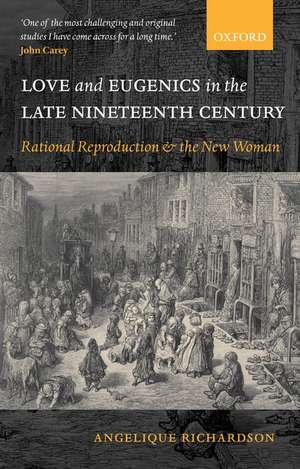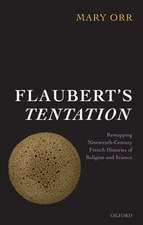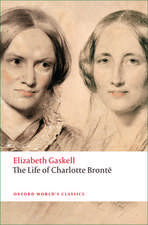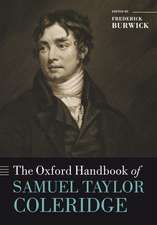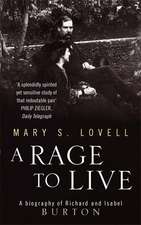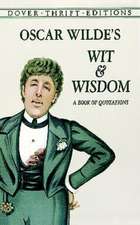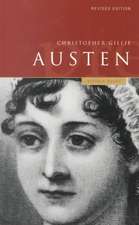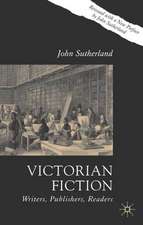Love and Eugenics in the Late Nineteenth Century: Rational Reproduction and the New Woman
Autor Angelique Richardsonen Limba Engleză Paperback – 12 iun 2008
| Toate formatele și edițiile | Preț | Express |
|---|---|---|
| Paperback (1) | 353.41 lei 31-37 zile | |
| OUP OXFORD – 12 iun 2008 | 353.41 lei 31-37 zile | |
| Hardback (1) | 947.86 lei 31-37 zile | |
| OUP OXFORD – 22 mai 2003 | 947.86 lei 31-37 zile |
Preț: 353.41 lei
Preț vechi: 386.24 lei
-8% Nou
Puncte Express: 530
Preț estimativ în valută:
67.62€ • 70.61$ • 55.84£
67.62€ • 70.61$ • 55.84£
Carte tipărită la comandă
Livrare economică 05-11 aprilie
Preluare comenzi: 021 569.72.76
Specificații
ISBN-13: 9780198187011
ISBN-10: 0198187017
Pagini: 280
Ilustrații: 16 cartoons and illustrations of the eugenic debate
Dimensiuni: 138 x 215 x 14 mm
Greutate: 0.4 kg
Editura: OUP OXFORD
Colecția OUP Oxford
Locul publicării:Oxford, United Kingdom
ISBN-10: 0198187017
Pagini: 280
Ilustrații: 16 cartoons and illustrations of the eugenic debate
Dimensiuni: 138 x 215 x 14 mm
Greutate: 0.4 kg
Editura: OUP OXFORD
Colecția OUP Oxford
Locul publicării:Oxford, United Kingdom
Recenzii
Review from previous edition One of the most challenging and original studies I have come across for a long time.
...an illuminating examination of the ways in which feminist writers incorporated eugenics and notions of rational reproduction into fiction in the late nineteenth and early twentieth centuries.
beautifully written and meticulously argued
Richardson's highlighting of the diverse ways in which love was constructed is compelling... elegantly and cogently brings together a wide range of eugenic and anti-eugenic sources and thinkers.
Swiftly establishes itself as a very significant contribution to the expanded field of New Woman scholarship... of Grand, of the feminism of the period and of the cultural history of eugenics itself.
Richardson enriches our understanding of the connections between feminist thought and Victorian biological science.
a very well-written and thoughtful piece of scholarship that successfully combines historical analysis and literary criticism. It is a welcome and important contribution to the cultural study of British eugenics and early feminism and, crucially, to the relationship between the two.
Richardson provides a valuably warts-and-all history of how feminism intersected with biological racism and hereditary elitism. As a result, this is a genuinely important contribution to the history of British feminism.
A finely organized and superbly researched study which significantly extends our knowledge of a literary cadre.
...an illuminating examination of the ways in which feminist writers incorporated eugenics and notions of rational reproduction into fiction in the late nineteenth and early twentieth centuries.
beautifully written and meticulously argued
Richardson's highlighting of the diverse ways in which love was constructed is compelling... elegantly and cogently brings together a wide range of eugenic and anti-eugenic sources and thinkers.
Swiftly establishes itself as a very significant contribution to the expanded field of New Woman scholarship... of Grand, of the feminism of the period and of the cultural history of eugenics itself.
Richardson enriches our understanding of the connections between feminist thought and Victorian biological science.
a very well-written and thoughtful piece of scholarship that successfully combines historical analysis and literary criticism. It is a welcome and important contribution to the cultural study of British eugenics and early feminism and, crucially, to the relationship between the two.
Richardson provides a valuably warts-and-all history of how feminism intersected with biological racism and hereditary elitism. As a result, this is a genuinely important contribution to the history of British feminism.
A finely organized and superbly researched study which significantly extends our knowledge of a literary cadre.
